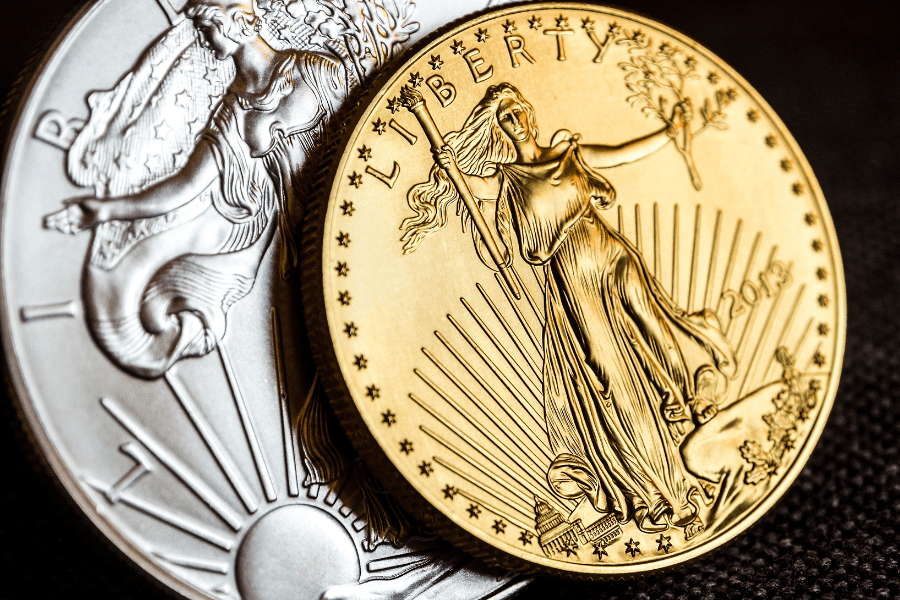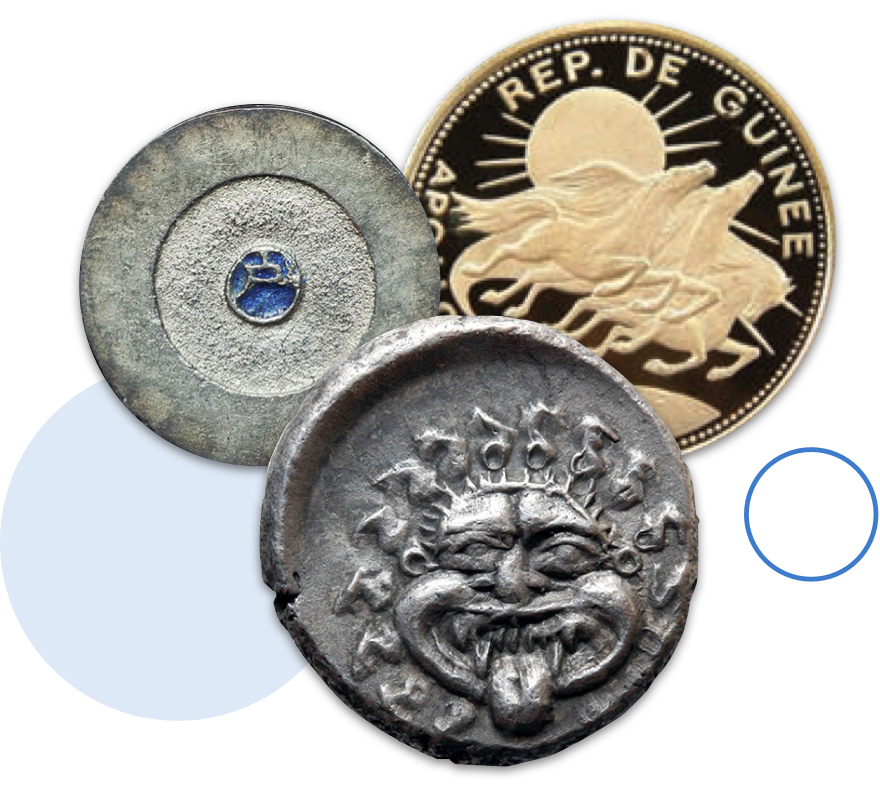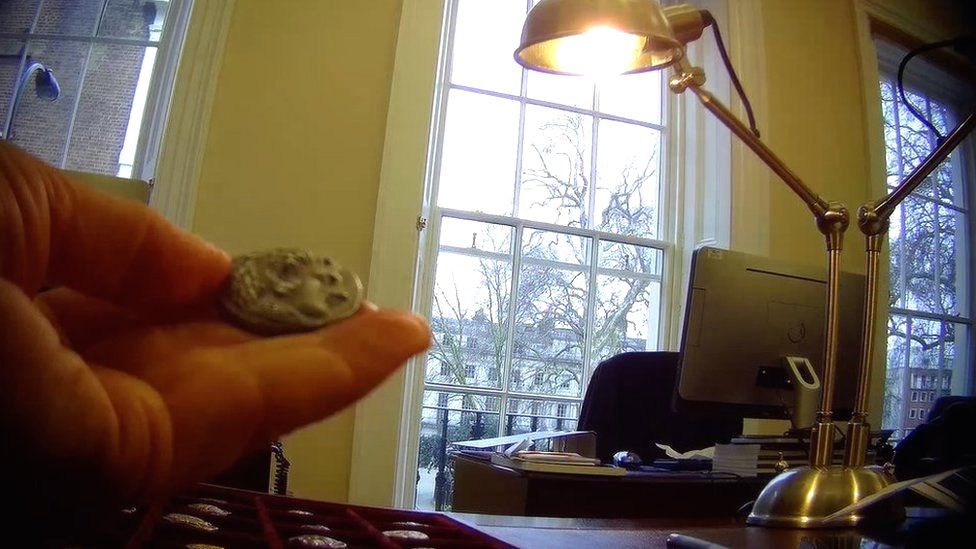Handy News For Selecting Precious Metals And Bullion Coins
Handy News For Selecting Precious Metals And Bullion Coins
Blog Article
How Can I Find Out More About Numismatics In Relation To Regional And Global Associations Using An Online Database?
This is a structured method for conducting this type of study. Here's a method for conducting such a research:Database selection: Pick databases that are specialized in numismatic organizations, such as websites of a major numismatic society like the American Numismatic Association(ANA) and the International Numismatic Council(INC) or a regional associations like the Numismatic Association of Australia. JSTOR is a database for academic papers conferences, databases, and conference proceedings.
Define Research Focus: Specify your research objectives. Are you interested to know more about global numismatic association's activities, history and regional collaborations, conferences and publications Are you searching for specific numismatic topic discussed within the associations? Set out your objectives for your investigation.
Search Strategy: Include keywords like "numismatic associations", "global numismatics" as well as "regional numismatic societies" depending on the context. Additionally, you may include the names of specific organisations or regions. Utilize advanced search options to filter results based on the date, the content (such papers from conferences or newsletters) and geographical scope.
Data collection: Access details on the goals, membership history and publications of global and regional associations. Look up information on previous or upcoming conferences, research collaborations, and workshops. Find out about the members of an association as well as their leaders and how to reach them.
Analysis: Analyze the data to comprehend the significance and role of regional and global numismatic associations. Examine how these associations improve knowledge about numismatics, promote international collaborations, share information via conferences and publications and encourage international collaborations.
Cross-Referencing: Verify your findings utilizing data from multiple databases and sources. Review the work and initiatives of various associations to get the complete picture of the global and regional trends in the field of numismatics.
Documentation: Ensure that you record your findings in a structured manner, noting sources and methods used. Keep track of the details like the databases you used, the search words employed, as well as the relevance of the source you used was for your study.
Numismatic associations are constantly evolving. New publications, conferences, and collaborative projects are launched regularly. Updates on websites of the associations, newsletters research databases as well as the websites of association organizations will keep you informed of the most recent developments in numismatics worldwide.
These steps can help you make use of databases to study numismatics with respect to local and international associations. This technique allows for an extensive analysis of the structure of organizations, scholarly activities, and collaboration efforts that define the numismatic field on both a global and regional scale. Check out the recommended currency society for site recommendations including treasury, german coins, coin marketplace, pound, currency catalog, coin catalog, dinar, nickel, german coins, proof coins and more.
How Do I Use An Online Database To Look Up Numismatics Regarding Exhibition And Show Events?
To conduct research about exhibitions and shows in the field of numismatics, it is necessary to make use of databases that have details about numismatic events including conferences, exhibitions and other events. Here's a structured approach to conduct research on this subject: Database Choice: Pick databases that specialize in numismatic events and exhibitions. For example, websites of major numismatic societies like the American Numismatic Association(ANA) websites, online platforms that showcase worldwide numismatic events or museums exhibition archives.
Define Research Focus: Specify your research objectives. Are you looking for upcoming and previous numismatic shows or conferences related to this topic, regional coin shows as well as themed exhibitions or educational programs? Find out what you are seeking to narrow your search.
Search Strategy: Include keywords like "numismatic exhibitions,"" coin shows" or "numismatic event" and, if applicable, include the names of topics, events, locations, or other relevant details. Use advanced search to filter results based on dates the event, its type (such an exhibition or conference) and the geographical location.
Data Collection: Access data from past and current numismatic exhibits and events. Information such as the dates, organizers, and locations of events, topics or collections, exhibitor taking part in the event, catalogues or publications associated with the event, etc., can be gathered. Find databases with virtual tours or access to exhibit materials in digital format.
Review data to discover themes, trends, and educational goals for numismatic exhibitions and events. Examine how different exhibitions and shows help to increase the public's awareness of numismatics. encourage exchange of knowledge, and showcase significant collections.
Cross-Referencing Check your findings by with information from multiple database databases, listings of events or official sites. This method ensures the accuracy of your research and complete, providing an entire overview of various numismatic events happening around the globe.
Documentation: Record your findings in a systematic manner by citing sources and highlighting the methodologies employed. Keep track of details on the databases you have accessed, the keywords used to search, and the relevance of every source you use to answer your research questions.
Keep informed: Numismatics are a dynamic industry, with a constant stream of new events including talks, exhibitions, and conferences. Stay current by monitoring the latest news from numismatic societies, event organizers, and specialized databases for the latest details on events coming up.
These steps can help you discover numismatics in databases with respect to events and exhibits. This technique allows for an in-depth analysis of the variety, educational values, and the scholarly value of numismatic exhibits and events around the globe. See the most popular zlatemince.cz czech precious metals for blog info including money, gold, pound, bullion, historical currency, antique banknotes, antique banknotes, coin collecting, coin issue, design and more.
What Can I Do With A Database To Research Numismatics With Regards To Historians And Researchers?
Conducting research on numismatics in relation to researchers and historians involves the use of databases that concentrate on academic publications, historical archives, and institutional repositories. An organized approach is offered to assist you in conducting this research. JSTOR, Google Scholar and the numismatic journals (such as the American Numismatic Society) are examples.
Define Research Focus: Specify your research objectives. Are you seeking to understand the historical context for artifacts of numismatics, the methods used in numismatic studies or specific numismatic issues studied by historians, or the contribution of scholars to the field of numismatics? Clarify your search to help you.
Search Strategy: Use keywords like "numismatics," numismatic research," or "historical coin" and, if applicable include historical periods, geographical regions, or themes that are related to the field of numismatics. You can use advanced search to narrow your search results by author affiliation, document type (such dissertations, articles or conference papers) dates, and document type.
Data collection: Find data on scholarly articles, research documents, and other numismatics from archives of the past. Gather information like the publication's title author, abstract methodology, the method used, historical context explored, and more. Look up databases for digital collections of numismatics or research access.
Examine the data to better understand the methods and theories employed by historians and researchers for numismatic research. Analyze how numismatics-related artifacts are utilized to support historical narratives or cultural studies. Compare the approaches and findings of different scholars across a variety of subjects in numismatics.
Cross-Reflection. Make sure your findings are correct by cross-referencing the information in numerous databases, articles of scholarly interest academic journals, or institutions' repository. This will ensure that your research is reliable and complete, providing you with a full picture of the academic numismatics research contributions.
Documentation. Note your research findings by citing sources noting the methods used. Note the details of the databases you have accessed as well as search terms used and the importance of each source to your research questions.
Research and publications in numismatics continue to evolve. Stay informed by keeping on top of the latest developments published in journals of academic research, numismatic societies, and institutions' repository.
These steps will enable you to use databases effectively for examining numismatics from the perspective of researchers and historians. This approach provides a comprehensive analysis of the historical meanings and contributions made by historians and scholars to the understanding of objects of numismatics within wider historical and cultural contexts. Have a look at the top rated currency catalog url for website recommendations including silver, coin expo, quarter, treasury, coin marketplace, proof, banknote forum, coin holder, banknote club, coin forum and more.
How Can I Find Out More About Numismatics In Connection To Publications And Journals Using A Database?
This research is based on the following: Database Selection: Select databases that focus on numismatic publications, numismatic journals, scholarly papers, as well as academic journals. Here's a systematic approach to conduct research in this area: Database Choice: Choose databases that specialize in journals, publications, and scholarly articles. Online databases such as JSTOR and Google Scholar are good examples. You can also search for journals that are numismatic, like those published by the American Numismatic Society, or libraries that house numismatic collections.
Define Research Focus: Specify your research objectives. Are you looking to learn about the numismatics' history or specific coin types Are more interested in the historical aspects of coinage or varieties from a specific period or type of coin? Find out the purpose of your research.
Use keywords, such as "numismatics", "numismatic publication", "numismatic journals" or specific types of coins (such old coins, medieval coins, modern coins, etc.) ) to narrow down your search results. Use advanced search to filter results by the type of publication, the date (articles or books), author affiliation, and the type of publication.
Data Collection: Find information from numismatic magazines and publications. Collect information such as the titles of articles, the authors abstracts, publication dates, and abstracts. Search databases that have full-text and digital archives for historical numismatic journals.
Analysis: Examine your data in order to understand the research trends and research contributions of numismatics. Analyze the methods used in numismatics research, the interpretations and standards for numismatic cataloging and the evolution of the numismatics field of study.
Cross-Referencing: Check your findings by cross-referencing information across several databases, numismatic journals, library catalogs, and institutional repository. This will ensure the accuracy and completeness of your research and offer insight into the scope of numismatic books.
Documentation: Document your findings in a systematic manner, citing sources and noting methodologies used. Notify the database's name, search terms and relevance of each source in relation to your research.
Numismatic studies and publications continue changing as new discoveries are discovered and interpretations are offered. Keep up-to-date by following the latest updates from numismatic societies journals of academic research and scholarly databases for the latest research findings and publications in numismatics.
Take these steps to successfully make use of databases to study numismatics and publications in relation to journals and publications. This technique allows for an extensive examination of the contributions to scholarly research as well as research methods and the historical perspectives provided by numismatic literature, offering valuable resources for understanding the complexity and diversity of coinage studies across different periods and cultural periods. Read the top rated coin artist for more examples including coin edge, czech coins, coin errors, banknote, pound, dirham, coin production, design, coin certification, bank and more.
How Do I Use An Online Database To Look Up Numismatics In Relation To Industry Trends And Insights?
Here's a method for conducting this type of research: Database Selection: Select databases that specialize in market research reports, industry analyses and expert opinions or publications from numismatic society. The following is a systematic procedure for conducting such research selecting a database: Pick databases that focus on market research reports and analysis of industries, as well as the numismatic literature. Some examples include market research platforms such as Mintel or IBISWorld as well as numismatic society magazines, industry-specific databases and business news sources.
Define Research Focus: Specify your research objectives. Are you looking to understand current market trends in numismatics and collecting, new trends in collecting technology advancements that impact the industry as well as the impact of economic factors on coin values, or regulatory changes impacting numismatic businesses? Determine the goal of your research.
Search Strategy: Use keywords like "numismatic industry trend,” "coin-collecting market analysis," and "emerging trends in Numismatics." Include specific topics, (ancients coins, moderns coins, or paper money) Keywords, phrases, or terms related to the question you are researching. Use advanced search options by specific industry dates, publication types and date (reports or articles).
Data collection: Discover information and insights on numismatics. You can find information on coin collecting and technology innovations including articles on digital cataloging or authentication, expert opinions on market fluctuations and economic analyses.
Analyze the data to identify key trends and the underlying factors that shape the numismatic industry. Examine market dynamics, such as trends in collector demographics, changes in the preferences of collectors (historical periods, themes), innovations in numismatic technology, and the impact of global economic trends on the value of coins and market demand.
Cross-Reference: Ensure the accuracy of your findings by cross-referencing data from various markets, databases as well as numismatic publications, and industry analysis. This will ensure the accuracy and thoroughness of your study. You will also get a better understanding of market trends.
Documentation: Document your findings in a systematic manner including citations to sources and highlighting the methodologies employed. Provide a detailed description of the databases you utilized, search terms, and the relevance of sources to your questions.
Keep up-to-date: Numismatic trends alter with changing market conditions, collecting styles, and technological advancements. Keep up-to-date with updates from numismatic and market research publications and reports, as well as industry reports and reports.
Databases can be used to gain insights and trends about numismatics by following these simple steps. This method lets you gain valuable perspectives on market dynamics, collectors' preferences, technological advancements, and economic trends within the numismatic industry, offering insights that are crucial for investors, collectors and numismatic collectors alike. Take a look at the top rated click this link about coin collecting for more advice including banknote collection, gold coins, banknote storage, currency grading, gold, proof coins, numismatics, coin catalog, penny, collection and more.